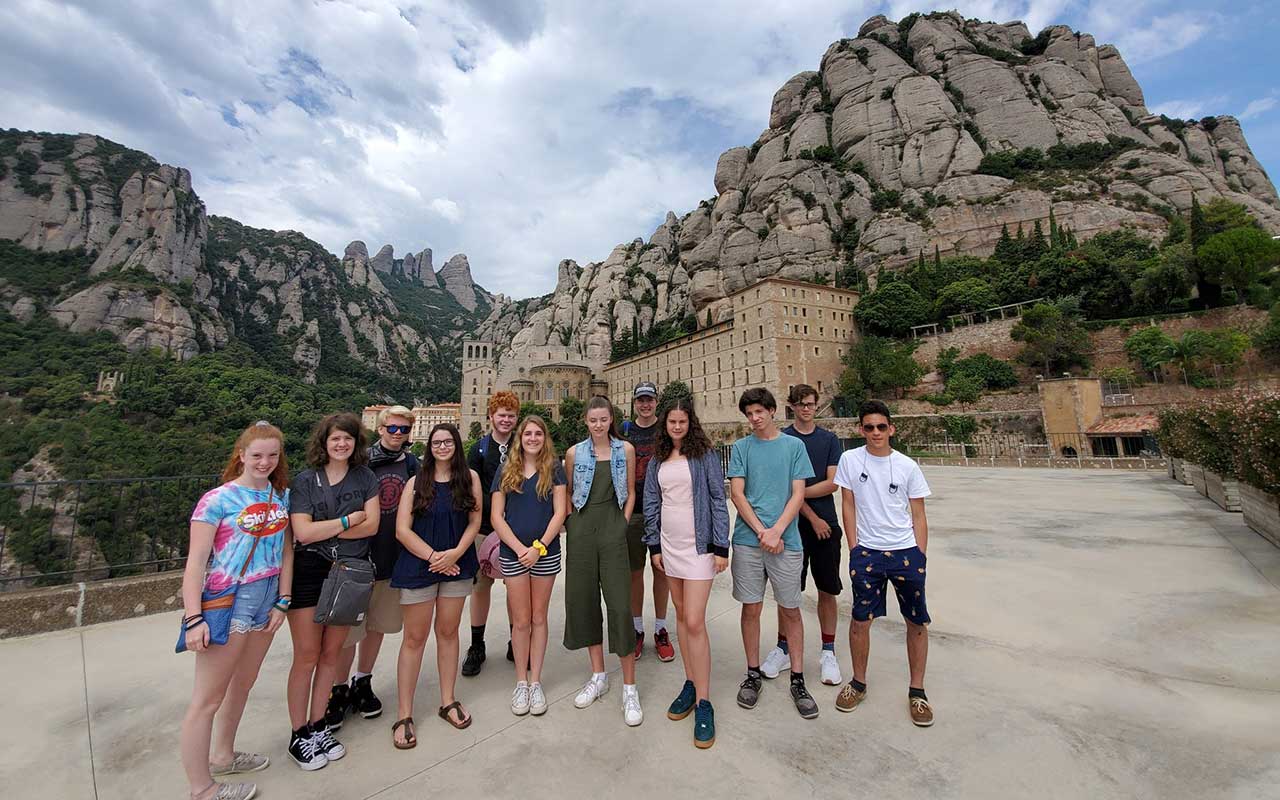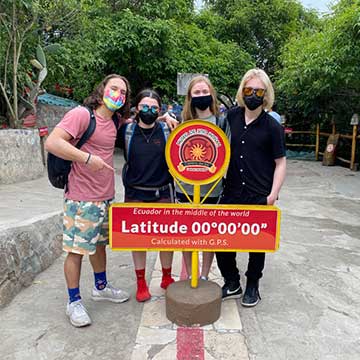This Month’s Featured Article

Oh The Places You’ll Go
 In the city of Xian, China, a bird flits along a ten-inch wooden perch inside a mahogany-colored cage. I don’t know what kind of bird it is, but the cage itself catches my attention. Cylindrical and peaked at the top and bottom, it is shaped like the buoys on the lobster traps I used to see on family trips to Gloucester, MA.
In the city of Xian, China, a bird flits along a ten-inch wooden perch inside a mahogany-colored cage. I don’t know what kind of bird it is, but the cage itself catches my attention. Cylindrical and peaked at the top and bottom, it is shaped like the buoys on the lobster traps I used to see on family trips to Gloucester, MA.
The mind works like this: we explore the world through analogy. That kindergarten teacher is like my mother. This baked sweet potato tastes like the puree I used to eat. Falling in love feels like being at the top of a roller coaster. By comparison, we translate the unfamiliar into something familiar.
Anchoring yourself amongst the unknown
Which is why, perhaps, that bird remains with me eight years after spending an afternoon in a Muslim market on the other side of the world. Underneath that cage lay a bin of dried grasshoppers, and next to it, a small basin containing five or six live turtles of alien appearance. A few stalls down, an aroma so beguiling wafted from a grill of searing meats that to this day, I don’t have the words to describe it; I am not sure they exist, at least in English. On that day, I was drawn into an environment so exotic that, like that bird in its cage, I latched onto a familiar perch to anchor myself amidst the unknown.
International travel unmoors us from our known world, yet we are usually within reach of recognizable shores: a tour guide, an all-too imminent flight home, or a congenial English-speaking stranger throws us a lifeline. But personal growth comes from those minutes spent fumbling for directions in a foreign tongue or trying to interpret a street sign. “I can do this,” is the lasting impression that these experiences leave on world travelers.
Global awareness
For this and a number of compelling reasons, most high schools endorse some form of international travel, with trips to Quebec, Spain, and France the most common destinations.
Since its founding, however, global awareness has been a cornerstone of Housatonic Valley Regional High School, beginning in the 1940s with its American Field Service program that supports international exchange programs, and now with its International Travel Club, founded in 2018, that promotes not only international trips, but works to make those trips attainable for all students through its fundraising entity, Northwest Students Without Borders.
In the short period of its existence, the club has sponsored trips to mainland Europe, China, and Greece, with plans in the works for trips next year to the Galapagos Islands, Japan, Ireland and Scotland. Students research potential destinations and work with teacher John Lizzi to narrow down the list to the most popular locations. Very few locations are off the list, though, and the club is currently considering trips in 2024 to such far-flung sites as Australia/New Zealand, Iceland, Belize, or Brazil.
This is a true travel club, driven by curiosity about the world instead of strictly curricular interests, an approach that opens up much more of the planet for student exploration. While most high school trips are anchored by language-learning goals, the International Travel Club operates year-round to visit locations for cultural and purely inquisitive reasons.
Fundraising
One of the other values that distinguishes the International Travel Club is its commitment to making travel accessible for all students. At their annual fundraising dinner this past fall, the club raised over $65,000 to offset the cost of travel for any student who wants to participate, cutting the cost of the trip by as much as 70 percent. For the past two years, the event has taken place beneath a tent on the lawn in front of Salisbury’s iconic White Hart Inn. A silent auction and a live auction take place throughout the evening, and the student-travelers are required to serve as wait staff for the event to earn their share of the proceeds. In addition to this group endeavor, the travel club announces its destinations over a year in advance, allowing families ample time to save or raise funds for the balance of the expenses and any spending money they need.
Understanding the human condition
While the educational benefits of travel are evident, the ancillary activities that support the voyages are equally instructive. Margot Minton (‘23) plans on traveling to Japan next spring and notes, “the HVRHS Travel Club gives us chances to raise money for our trips and provides us with skills in communication and organizing finances, skills that can help us outside of high school.”
In addition to working at the dinner, students solicit local businesses to sponsor a silent auction and to act as title sponsors for the event.
The learning continues well beyond the trip itself, too. Students reflect upon their travel experiences with fellow travelers in an academic setting and frequently cite their learning from the trip in classroom settings. Visiting the UConn Human Rights course this fall, I listened as students immediately invoked their trip to Greece as a reference point in understanding the range of the human condition around the globe. Not every country is like the northwest corner of Connecticut, they realized, and as the conversation progressed, the student-travelers provided a context for their discussion that paid dividends even for those students who had not gone on the trip. As Henry Rollins once said, “The best way to learn about your country is to leave it.”
Cash or check donations to the International Travel Club can be sent to Housatonic Valley High School, 246 Warren Turnpike Road, Falls Village, CT 06031. Online donations can be made by clicking on “Sponsor/Donate” at http://winedinnerandauction.



